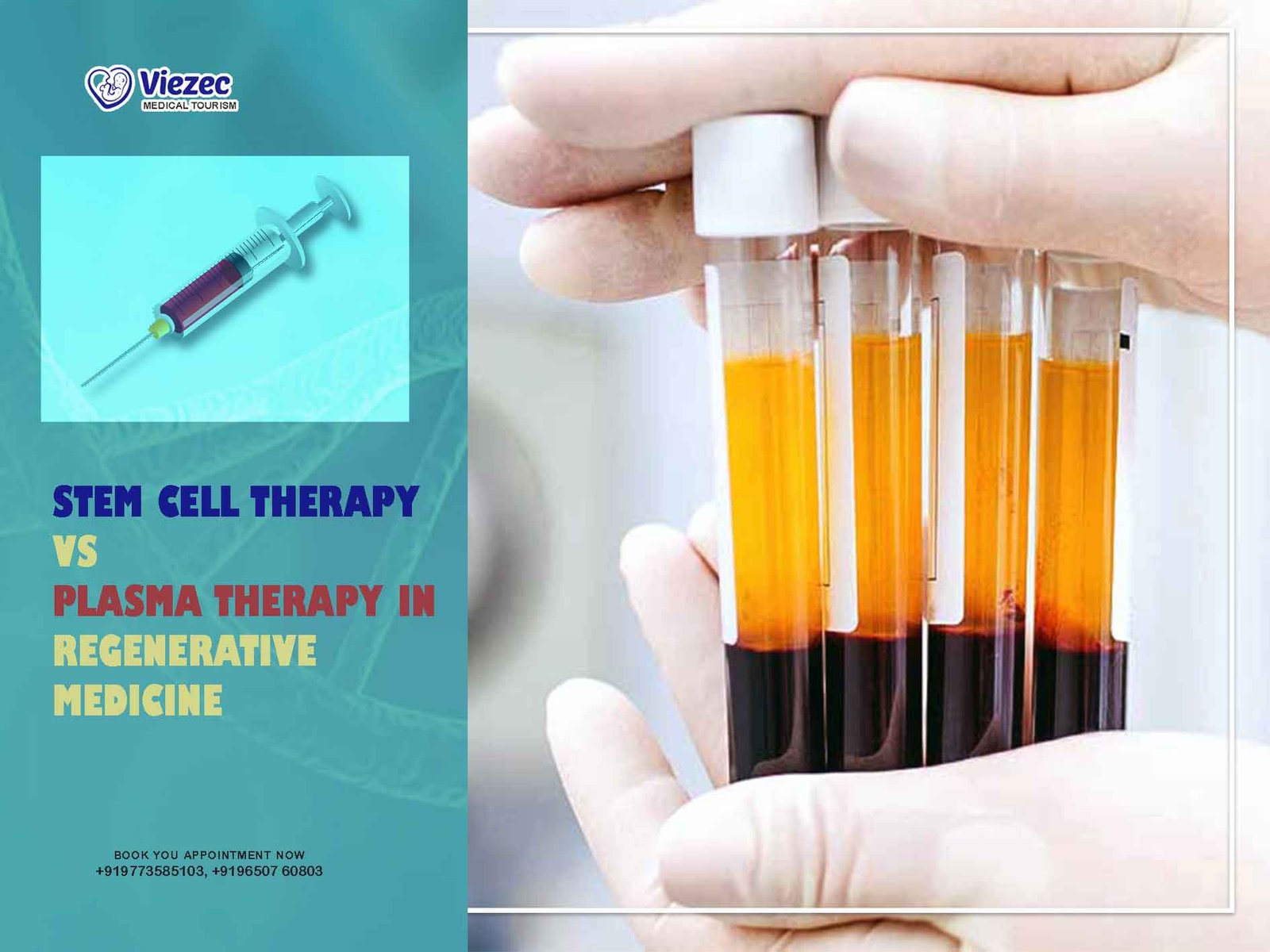Eczema, also known as atopic dermatitis, is a chronic skin condition that affects millions worldwide, characterized by red, itchy, and inflamed skin. Despite numerous treatment options ranging from topical steroids to immunosuppressants, many individuals continue to struggle with managing their symptoms. In recent years, stem cell research has emerged as a groundbreaking field with the potential to transform eczema care. This article explores the scientific foundations of stem cell therapy, its application in treating eczema, and the possibilities it holds for the future of dermatological treatments.
What Are Stem Cells and How Do They Work?
Stem cells are unique, undifferentiated cells capable of developing into various specialized cell types in the body. They play a crucial role in tissue repair, regeneration, and immune modulation. The two primary types of stem cells used in medical research are embryonic stem cells (ESCs) and adult stem cells, including mesenchymal stem cells (MSCs) derived from bone marrow, fat tissue, and umbilical cord blood. These cells are heralded for their ability to reduce inflammation, promote healing, and restore damaged tissues.
In the context of eczema, stem cells offer a multifaceted approach to addressing the underlying causes of the condition. They can potentially reset the immune system, regulate the overactive inflammatory response, and repair the damaged skin barrier. This mechanism of action makes stem cells a promising therapeutic option for individuals who have not responded well to conventional treatments.
Current Treatment Limitations in Eczema Management
Traditional eczema treatments often focus on managing symptoms rather than addressing the root cause. Topical corticosteroids, for instance, are widely prescribed to reduce inflammation and itchiness but can lead to side effects such as skin thinning and dependency with prolonged use. Similarly, immunosuppressants and biologics like dupilumab offer relief but may not be suitable for everyone due to their high costs and potential adverse effects.
Moreover, these treatments primarily target the immune system without repairing the compromised skin barrier, a hallmark of eczema. The lack of curative options leaves patients in a cycle of flare-ups and temporary relief, highlighting the need for innovative approaches like stem cell therapy. As stem cell research progresses, it holds the potential to address these limitations and revolutionize eczema care by offering more durable and holistic solutions.
Stem Cell Therapy in Dermatology: An Overview
Stem cell therapy has gained significant attention in dermatology for its regenerative capabilities. The application of stem cells in treating eczema involves various approaches, such as direct injections, topical applications, and the use of stem cell-derived exosomes. Mesenchymal stem cells, in particular, have shown promise due to their anti-inflammatory and immunomodulatory properties.
Preclinical studies and small-scale clinical trials have demonstrated the potential of stem cells to reduce eczema symptoms and improve skin health. For example, MSCs have been shown to suppress the production of pro-inflammatory cytokines and enhance the secretion of anti-inflammatory molecules. Additionally, stem cell therapy may help rebuild the damaged epidermal barrier by promoting the growth of keratinocytes, the primary cells in the outermost layer of the skin.
Scientific Evidence Supporting Stem Cell Therapy for Eczema
Emerging research underscores the potential of stem cells in eczema treatment. Some, clinical trials involving human participants have reported encouraging results. In one study, patients treated with stem cell-derived exosomes experienced a noticeable reduction in eczema severity and improved skin texture. Another trial demonstrated the safety and efficacy of intravenous MSC infusions in reducing systemic inflammation and alleviating eczema symptoms. These findings suggest that stem cell therapy could become a viable alternative to conventional treatments, offering long-term benefits without the associated risks of traditional medications.
Potential Advantages of Stem Cell Therapy Over Conventional Treatments
One of the most compelling aspects of stem cell therapy is its ability to address the root causes of eczema rather than merely managing symptoms. Unlike corticosteroids and immunosuppressants, stem cells work at a cellular level to modulate the immune response, reduce chronic inflammation, and repair damaged tissues. This comprehensive approach could lead to more durable and sustained improvements in eczema symptoms.
Additionally, stem cell therapy is less likely to cause the side effects commonly associated with conventional treatments. For instance, MSCs are known for their immunoprivileged status, meaning they are less likely to be rejected by the patient’s immune system. This reduces the risk of adverse reactions and makes stem cell therapy a safer option for long-term use. Moreover, the regenerative properties of stem cells may help prevent future flare-ups by strengthening the skin’s natural barrier and restoring its integrity.
Stem Cell Research for Eczema
Stem cell therapy in eczema care looks promising, with ongoing research aimed at overcoming current limitations and enhancing its efficacy. Scientists are exploring innovative techniques such as gene editing to optimize stem cells for specific therapeutic purposes. For instance, CRISPR-Cas9 technology could be used to modify stem cells to produce anti-inflammatory cytokines or enhance their regenerative properties.
Additionally, advancements in biomaterials and tissue engineering are paving the way for more effective delivery methods. Hydrogel-based stem cell patches and 3D-printed skin grafts infused with stem cells are among the emerging technologies that could revolutionize eczema treatment. These approaches not only enhance the therapeutic potential of stem cells but also improve patient comfort and treatment outcomes.
Collaborative efforts between researchers, clinicians, and industry stakeholders are essential to accelerating the translation of stem cell research into clinical practice. By addressing the challenges of cost, accessibility, and regulatory approval, stem cell therapy could become a cornerstone of eczema care in the coming years.
FAQs
1. Is stem cell therapy a proven treatment for eczema?
While stem cell therapy shows great promise, it is still considered an experimental treatment for eczema. Preliminary studies and clinical trials have demonstrated its potential to reduce inflammation, repair damaged skin, and improve overall symptoms. However, more extensive research is needed to establish its safety, efficacy, and long-term benefits before it can be widely adopted as a standard treatment.
2. How is stem cell therapy administered for eczema?
Stem cell therapy for eczema can be administered in various ways, including intravenous infusions, localized injections, or topical applications. The specific method depends on the type of stem cells used and the severity of the condition. For example, mesenchymal stem cells are often delivered intravenously to modulate the immune system, while stem cell-derived creams or patches may be applied directly to the affected skin.
3. Are there any risks or side effects associated with stem cell therapy?
Stem cell therapy is generally considered safe, especially when using autologous stem cells (derived from the patient’s own body). However, as with any medical procedure, there are potential risks, such as infection or unintended tissue growth. It is crucial to receive treatment from qualified professionals and ensure that the stem cells are sourced and processed under stringent quality standards.
4. How much does stem cell therapy for eczema cost?
The cost of stem cell therapy can vary widely depending on factors such as the type of stem cells used, the method of administration, and the clinic offering the treatment. On average, the cost can range from several thousand to tens of thousands of dollars per session. Efforts are underway to make stem cell therapy more affordable and accessible, but it remains a significant financial investment for most patients.
5. When will stem cell therapy become widely available for eczema treatment?
The timeline for widespread availability of stem cell therapy for eczema depends on the results of ongoing clinical trials and regulatory approvals. As research progresses and more robust evidence emerges, stem cell therapy could become a mainstream treatment option within the next decade. Until then, it is essential to stay informed about advancements in the field and consult healthcare professionals for guidance.











